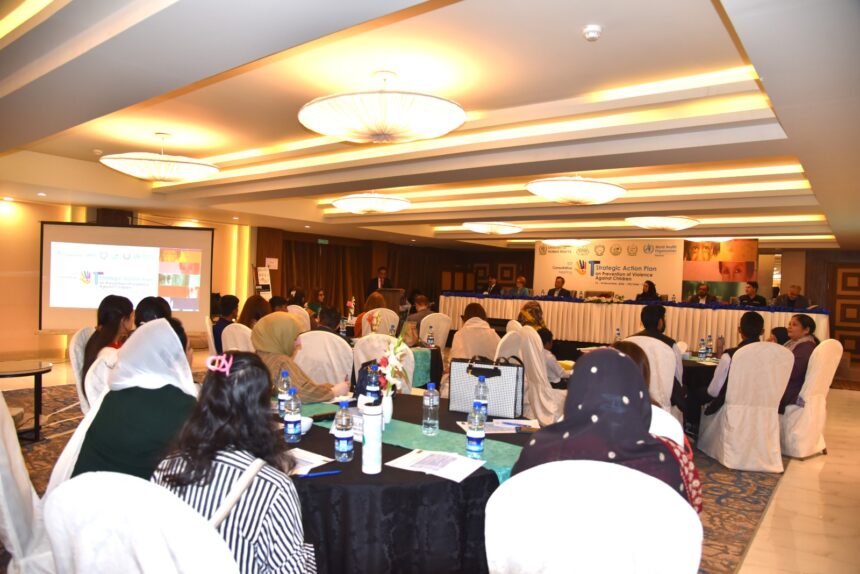WHO and Pakistan Begin National Consultations to Protect 112 Million Children from Violence
ISLAMABAD – Pakistan has launched a nationwide consultation process with the World Health Organization (WHO) to develop the country’s first Strategic Action Plan aimed at preventing and responding to all forms of violence against an estimated 112 million children. The initiative, led by the Ministry of Human Rights in coordination with provincial governments and key partners, marks a major step toward creating a unified national framework to safeguard children from abuse, exploitation, and neglect.
The multi-stakeholder consultations began last week in Karachi and concluded in Islamabad with active participation from all provinces and self-governed regions. Officials emphasized that children in Pakistan face a wide spectrum of violence, including violent killings, physical abuse, sexual assault, psychological violence, and chronic neglect — risks that are significantly higher for children in urban slums, migrant communities, displaced populations, and those involved in child labour.
The Strategic Action Plan will be guided by the Convention on the Rights of the Child and aligned with WHO’s INSPIRE framework — a globally recognized package of seven evidence-based strategies that have proven effective in reducing violence against children. These strategies address legal reforms, harmful social norms, safer environments, caregiver support, economic strengthening, responsive services, and essential life-skills education.
Federal Secretary for Human Rights, Abdul Khalique Shaikh, said Pakistan urgently needs a coordinated, multi-sectoral response.
“We recognize that fragmented efforts must now evolve into a cohesive, national strategy that mobilizes education, health, law enforcement, and community systems together. The National Strategy on Violence Against Children will provide that unified vision, with measurable targets, clear institutional responsibilities, and a robust monitoring and evaluation framework,” he stated.
Pakistan’s protection gaps remain stark. Only one in three children under the age of five is registered at birth, severely limiting their access to legal identity and social services. More than 12.5 million children are engaged in child labour, while millions more face risks of trafficking, early marriage, forced labour, and exploitation.
WHO Representative in Pakistan, Dr Luo Dapeng, underscored the urgency of the crisis.
“Violence against children is a concerning public health issue. This Strategic Action Plan is not just a document — it is a roadmap to protect our children and grandchildren from a worldwide crisis. Violence is jeopardizing the lives and the future of millions of children, and therefore our own future. WHO stands with Pakistan to build a country where every child is safe and able to thrive.”
Dr Muhammad Arif, Director of International Cooperation at the Ministry of Human Rights, said the consultations mark the start of a long-term national effort.
“These consultations mark not an end, but the beginning of a coordinated effort to develop a strategic roadmap aligned with constitutional guarantees, the Sustainable Development Goals, and Pakistan’s commitments under key UN human rights conventions. Strengthening and integrating existing legal and institutional frameworks is crucial to effectively prevent and respond to violence against children.”
Globally, WHO estimates that one billion children experience physical, sexual, or emotional violence every year, with devastating lifelong impacts on mental and physical health. On average, a child dies from violence every five minutes — deaths that experts stress are entirely preventable.
The Strategic Action Plan is expected to pave the way for a comprehensive national response, bringing together government institutions, civil society, and international partners to create safer environments, strengthen accountability, and build systems that protect every child in Pakistan.
Read in Urdu: پاکستان اور ڈبلیو ایچ او کی ملک گیر مشاورت، 11 کروڑ 20 لاکھ بچوں کو ہر قسم کے تشدد سے بچانے کا قومی منصوبہ تیار











